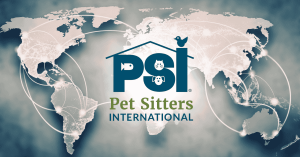National Dog Bite Prevention Week, observed annually during the second full week of April, serves as a crucial reminder that while dogs are cherished companions, any dog can bite under certain circumstances. This initiative, supported by the American Veterinary Medical Association (AVMA), aims to educate the public on preventing dog bites and promoting responsible pet ownership.
A Brief History of National Dog Bite Prevention Week

National Dog Bite Prevention Week, held annually during the second full week of April, was initially established by the American Veterinary Medical Association (AVMA) in partnership with other organizations, including the American Humane Society, to raise awareness about dog bites and educate people about prevention. While I couldn’t find the specific date, it looks like this observance may have started as far back as 1989.
Neverteless, today, the week aims to reduce dog bite incidents by promoting responsible pet ownership and safe interactions between dogs and humans. Since then, it has evolved into a collaborative effort involving veterinarians, animal behaviorists, and insurance representatives, all working together to reduce the incidence of dog bites through education and awareness. There is also an aspect of it that aims to promote rabies vaccinations, thanks to which rabies-related dog bites are rare.
Safety Tips for Outdoor Adventures
Whether you’re walking your dog or exploring the outdoors with your adventure cat, it’s essential to be prepared for unexpected encounters with unfamiliar or aggressive animals. Here are some practical safety measures that we take at Animal Admiration Pet Care – especially during coyote mating season and if we’ve spotted lose dogs in certain areas.
To Carry On Your Person

- Deterrent Spray: Products like PetSafe’s SprayShield® emit a citronella-based spray that surprises and distracts threatening animals, providing a safe opportunity to retreat without causing harm.
- Noisemakers: Compressed air cans like Pet Corrector™ can serve as effective noisemakers to startle and deter approaching animals. The sudden sound can interrupt aggressive behavior, allowing you to create distance.
- Local Emergency Numbers: Storing non-emergency police numbers and animal control contact information in your phone can prove very helpful if you encounter a situation where their presence is needed. In Katy, the non-emergency police number is 281-391-4848 and Animal Control can be reached at 281-391-4740. In Fulshear, the non-emergency policy number is 281-346-2202 and Animal Control can be reached at 281-342-1512.
- Backpack or Stroller for Cats and Tiny Dogs: While walking cats on harnesses and leashes is becoming increasingly popular, cats are safest in a backpack or stroller, especially in areas that are crowded and attract a large number of dogs. The same goes for small breeds of dogs that are delicate and need minimal exercise.
To Practice as a General Rule
Always, no matter the season or area, we, as a team, practice the following safety protocols:

- Keep Cell Phones Charged: It is critical to have a fully charged cell phone to call for help or contact animal control if you encounter a dangerous situation.
- Stay Alert and Aware: Be vigilant of your surroundings, especially in areas where wildlife or off-leash dogs are common. Avoid distractions like headphones and scrolling social media, which can impair your awareness and personal safety.
- Avoid Unfamiliar People and Dogs: The best way to avoid unpleasant interactions that could escalate into a dog bite is to keep a safe distance from unfamiliar people and dogs. Use a 6-foot leash and avoid retractable leashes to maintain adequate control over your dog(s) on walks.
- Educate Yourself and Others: Learn about canine body language and signs of reactivity or aggression. Sharing this knowledge with family, friends, and neighbors can help prevent incidents.
- Don’t Reward Mouthing: Never encourage kittens or puppies to mouth or play bite. It can teach unwanted behaviors in the future. If your kitten or puppy mouths you and your family beyond the early puppy days, engage a trainer or behavior expert to help you teach him or her not to bite.
- Never Pick Up a Cat or Dog Without Their Consent: Cats and little dogs often bite because they are picked up against their will. Never pick up a dog that isn’t yours – and, even with your dog, respect their space and body autonomy to prevent nips and bites.
- Always Supervise Dogs and Children: Some of the most common cat and dog bites are bites directed at children. Many dogs don’t know how to interact with kids and vise versa. It’s our responsibility as adults to observe and guide kids around cats and dogs.

National Dog Bite Prevention Week in Katy, Fulshear, Cypress & Beyond
By taking these precautions, you can enjoy outdoor activities with your pets while minimizing the risk of negative encounters. Remember, preparation and awareness are key to ensuring the safety of both you and your furry companions.
At Animal Admiration, we take prevention very seriously. For this reason, our team is taught to take precautions and stay vigilant. If ever they encounter a worst-case scenario, they are trained to handle them to the best of their ability. If ever you notice a reactive or aggressive dog in your area or spot stray dogs or wildlife, we ask that you please inform us so that we may adequately prepare our staff members to navigate the situation.

Join the Animal Admiration Pet Care Family
Our team of outstanding cat care providers offers quality dog sitting, cat sitting, and dog walking in Katy, Fulshear, Richmond, Energy Corridor, Memorial, West Houston, and Cypress. For new clients, please contact us at info@animaladmiration.com or (281) 391-1015 to learn about our in-home pet care services. Existing clients, schedule your pet care visits here.
If you are outside our above-listed areas, please visit Pet Sitters International or the National Association of Professional Pet Sitters to find a professional pet care provider near you.

Brooke Rozell began her professional pet sitting career in 2003. In 2011, she established Animal Admiration to bring trusted, professional pet care to the Katy, Cypress, Fulshear, and West Houston areas while elevating the pet sitting industry as a whole. Brooke is an active member of Pet Sitters International, the National Association of Professional Pet Sitters, the Texas Pet Sitters Association, and the Katy Area Chamber of Commerce. Learn more about Brooke.




